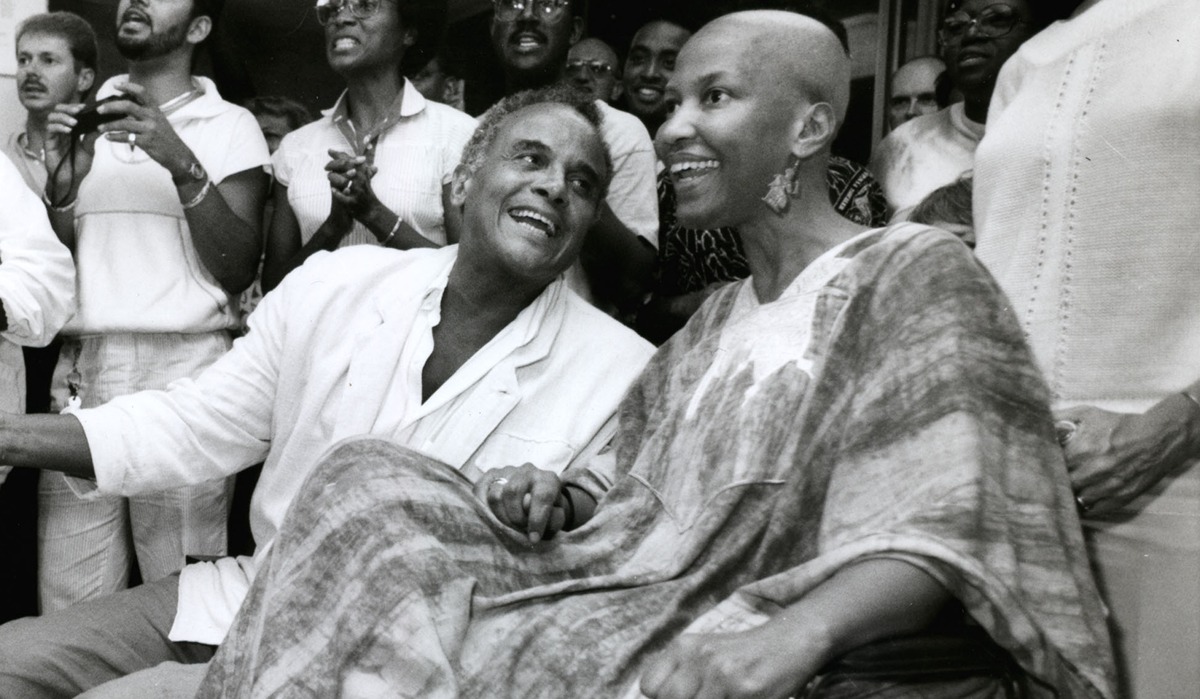Trailblazing entertainer and civil rights activist Harry Belafonte died Tuesday at age 96. Baptized Roman Catholic as an infant, he found so much inspiration in the ministry of The Catholic University of America alumna Sister Thea Bowman that he bought the rights to make a film about her life.
Belafonte was one of the most prominent champions of the Civil Rights Movement and was friends with Rev. Martin Luther King Jr. Franciscan Sister of Perpetual Adoration Thea Bowman M.A. 1969, Ph.D. 1972, was a nationally known advocate for Black Catholic expressions of the faith and a cause for her canonization was opened in 2018.
At the height of Sister Bowman’s fame, she persuaded “60 Minutes” lead reporter Mike Wallace to say, “Black is beautiful” during a 1987 primetime television profile on her ministry. Belafonte watched the broadcast and knew he wanted to bring her witness to hope and healing to wider audiences.
Belafonte contacted Sister Bowman to discuss his idea of a feature film about her life starring Whoopi Goldberg, both of whom she met during a visit to California. Actor and singer Belafonte was a Hollywood icon who was widely respected for his social justice activism, so Sister Bowman trusted that he would do her life’s work justice. Belafonte went to great lengths to get personally involved in bringing her story to the big screen.
Sister Bowman invited Belafonte to her home in Canton, Mississippi, and to Xavier University of Louisiana's Institute for Black Catholic Studies, of which she was founding member. He visited both places in 1988 to speak with Sister Bowman’s friends and students to learn about her impact on their lives.
Even though she was using a wheelchair due to a battle with cancer that took her life less than two years later, he saw that nothing kept her down. They became practically inseparable, and Belafonte was seen pushing her along in her wheelchair.
Sister Bowman’s condition worsened and Belafonte traveled to visit her at her bedside. A screenplay was drafted soon after her death, but Belafonte and her Franciscan community differed on who should have final editorial control over her portrayal. Belafonte’s film rights eventually expired and the biopic never materialized.
Nevertheless, Belafonte’s efforts to make Sister Bowman more widely recognized have not been forgotten. A few years after meeting her, Goldberg donned a habit to for the hit film “Sister Act.” Last year, a documentary about Sister Bowman’s life aired on ABC affiliate stations.



